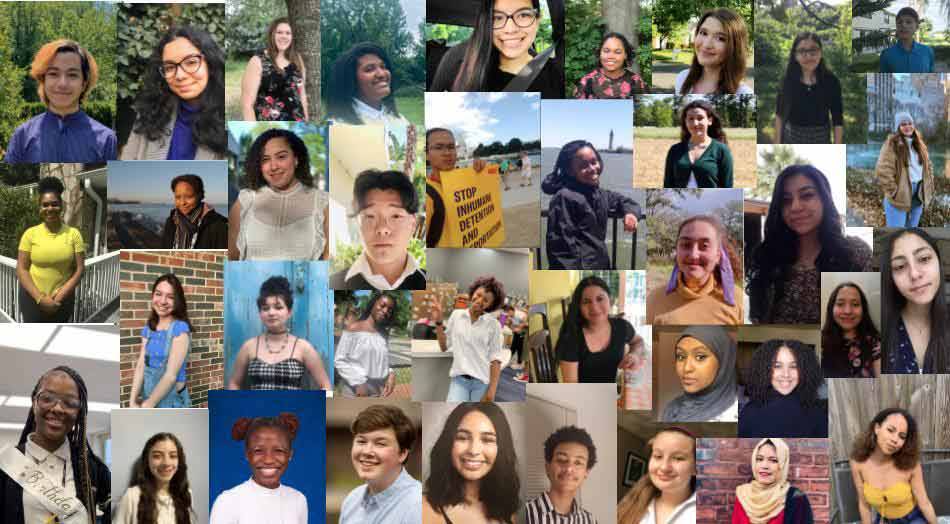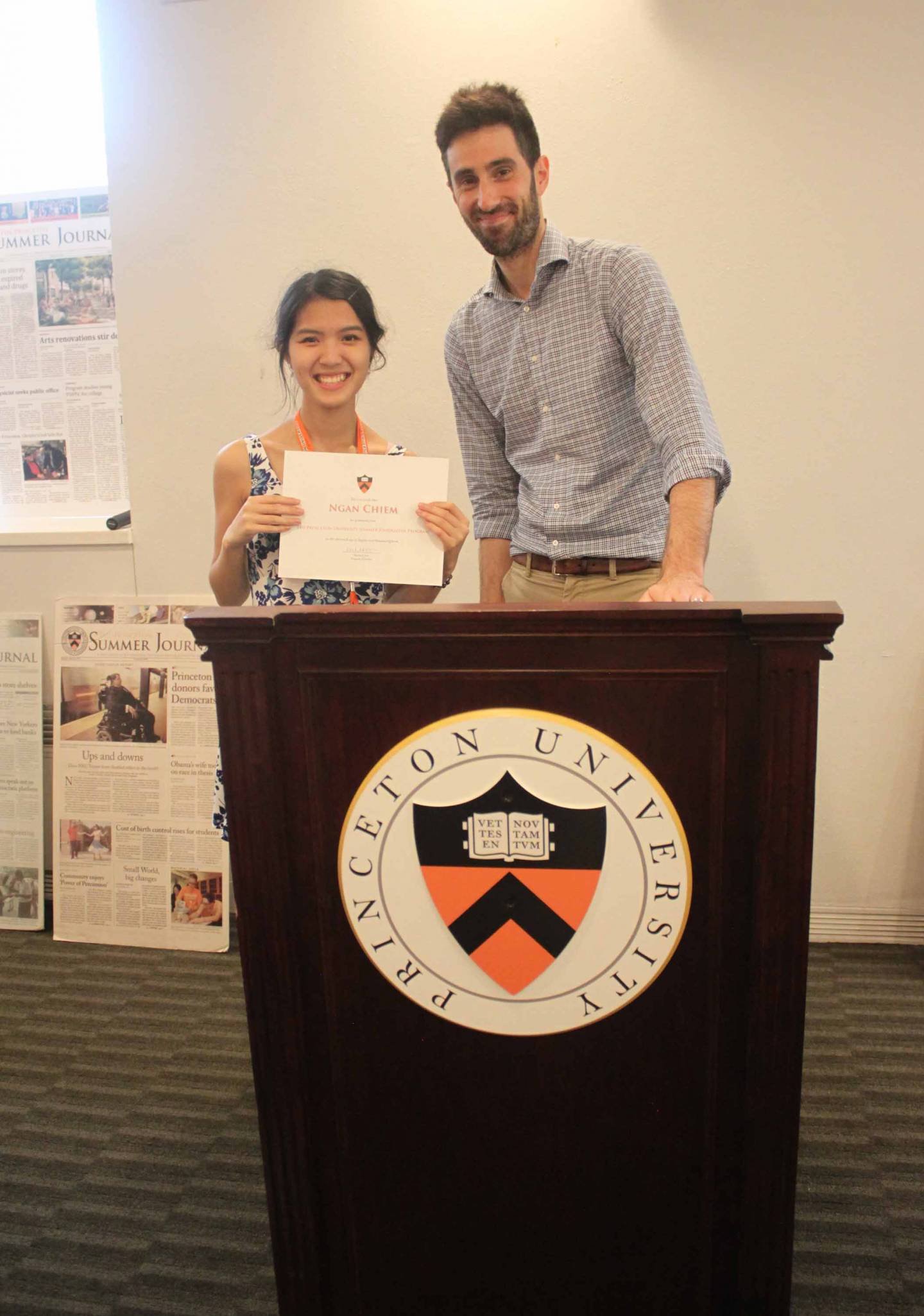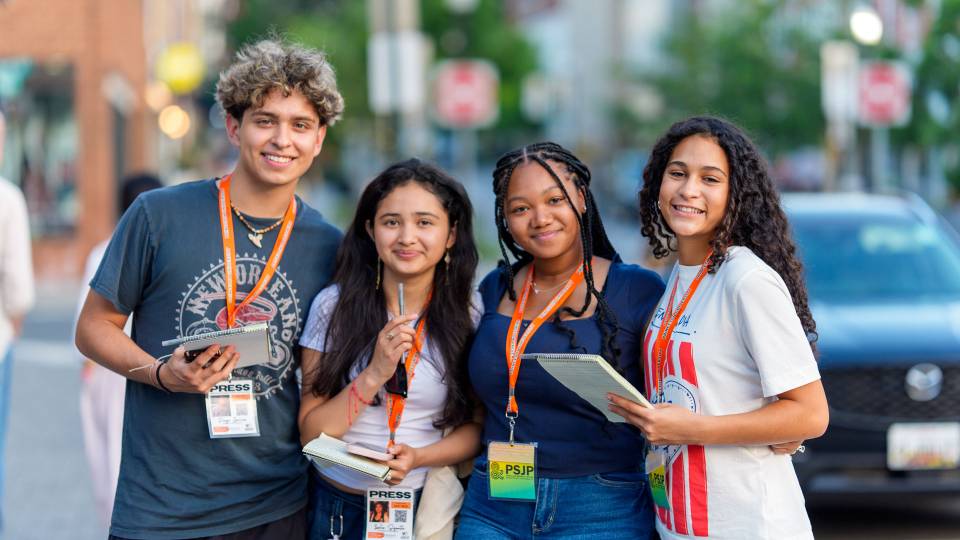On any given Zoom session during the 2020 Princeton Summer Journalism Program (PSJP), students tuned in from all across the country, some babysitting their siblings in the background, and others calling in from a train or just getting out of work.
In the past, the program hosted 40 high school seniors from low-income backgrounds on Princeton’s campus for 10 days, free of charge, to learn the ins and outs of journalism from professional reporters. As a result of the COVID-19 pandemic, however, this year’s program was quickly adapted into a seven-week virtual experience that asked everyone involved to rise to the occasion.

Thirty-seven students from 20 U.S. states participated in the 2020 Princeton Summer Journalism Program (PSJP), which was held virtually this year due to the COVID-19 pandemic. The program, which is aimed at college-bound, low-income students, steeps them in rigorous journalistic practice, then guides them through the college admissions process during their senior year of high school.
It asked the organizers to anticipate technological issues and retrofit workshops for Zoom. It asked the volunteer counselors to edit students’ writing for seven weeks instead of 10 days, on top of working their professional jobs, which they did with incredible generosity. It asked many things of the students, but most crucially, the virtual programming asked them to practice a radical empathy that could transcend the confines of their computer screens and help them form bonds within the program.
PSJP thrives on human relationships. It is completely made up of volunteer counselors, many of whom are passionate alums of the program. As this year’s coordinators, Evelyn Doskoch, Class of 2023, and I worked with our program associate Tieisha Tift to ensure that the virtual PSJP retained the same spirit of community as those in the past.
We set aside small group meetings to give students the opportunity to bond with counselors and cultivated open discussions within a messaging app to allow for easy, spontaneous conversations between members of PSJP.
Each week, students were given a reporting assignment. These were story prompts that asked them to use skills taught during weekly Zoom workshops to craft articles for The Princeton Summer Journal and our blog.
This impossible year saw much of our students’ reporting centered around COVID-19. Our young reporters drilled congressional candidates on their plans for school reopenings, documented the struggles of essential workers, and conducted an impressive investigation into the myriad and often reckless approaches to the reintroduction of high school sports this fall.

Rising Princeton University sophomore Ngan Chiem, left, who graduated from PSJP in 2018, is one of dozens of program participants who have gone on to attend Ivy League and other top colleges and universities. She poses for her program certificate along with PSJP Director Richard Just, a 2001 Princeton alum.
The assignments gave students the opportunity to collaborate and form friendships. In their goodbye videos, PSJP students Tara Monastesse from Warwick, Rhode Island, and Myanna Nash from Chicago, took turns thanking each other for being the “best reporting buddy in the whole world.”
Along with these assignments, students also attended Zoom lectures and workshops featuring some of the most recognizable names in journalism. From CNN’s Don Lemon to Univision’s Jorge Ramos to Teen Vogue’s Editor-in-Chief Lindsay “LPW” Peoples Wagner, our students were exposed to diverse, high-profile professionals who could speak about their success as well as their tribulations.
“What are some challenges to being a Black woman in the industry?” a student asked LPW.
She chuckled. “How much time do you have?”
Journalism is a white-dominated profession. In 2002, Richard Just, founder and executive director of the program and a 2001 Princeton alumnus, created it with the goal of diversifying newsrooms. In support of that goal is the program’s other mission: to support and encourage students of color and low-income backgrounds to apply to prestigious universities.
By organizing weekly SAT and ACT test preps and inviting college admissions officers to the program, our team worked to prepare our students for the college admissions process. The success of the program is resonant in our alumni body’s various ties to prestigious universities.
During an alumni panel, past members shared their wisdom about surviving and thriving in predominantly white institutions with this year’s participants. “You belong there,” they said.
Perhaps the best testament to PSJP’s commitment to students’ success is in its college counselor match. At the end of the program, each student is paired with a volunteer college counselor dedicated to helping them navigate the admissions process throughout their senior year of high school.

Chiem, left, and student co-coordinator Evelyn Doskoch, Class of 2023, prepare packets of SAT and ACT study materials to mail to this year’s journalism program participants.
As a first-generation college student and 2018 alum of the program, I was incredibly relieved to have a dedicated college counselor to review my personal essay and answer my questions about financial aid. She became my moral support. When I received my acceptance letter from Princeton, she was the first person I called to share the life-changing news.
PSJP concluded its 2020 session on Aug. 10. In the midst of a pandemic, with most of us still locked in our homes, the program allowed us to interact with some of the most charismatic characters and deep thinkers of the world. On a Thursday afternoon, we could all be found huddled around our respective monitors, sharing a space of intellectual curiosity that transcended the cells of our Zoom call.
Ngan Chiem is 2018 PSJP alumna and a rising sophomore at Princeton University. A Vietnamese native, she currently lives in Pennsauken, New Jersey. She plans on concentrating in public and international affairs or English, and she is pursuing certificates in creative writing and Asian American studies.






